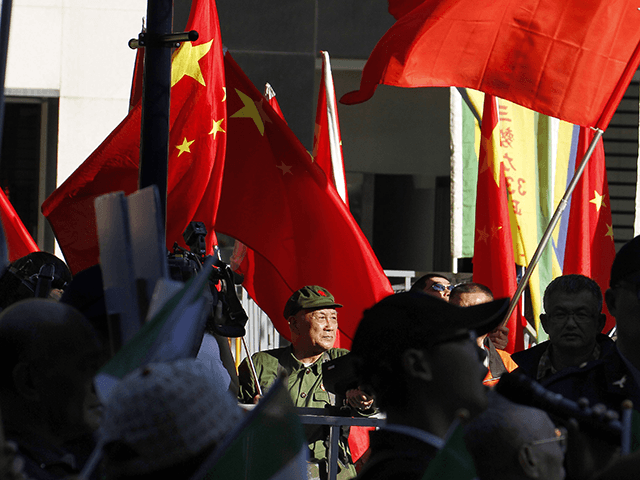The Chinese Communist Party (CCP) is compiling a “blacklist” of Taiwan independence activists who will face criminal prosecution by Chinese authorities for their efforts to protect the island’s democratic rule, Hong Kong-based newspaper Ta Kung Pao reported on Sunday.
“For the ‘stubborn secessionists’ and their funders, the mainland [China] will take strict measures to bring them to justice. … They will be held accountable for life. We highly support the formulation of the list,” China’s state-run Global Times wrote of the alleged blacklist in an editorial published on Monday.
“Those on the list will be punished in accordance with the [Chinese anti-secession] laws and may face criminal prosecution. That means they will no longer be able to set foot in Hong Kong, Macao and the Chinese mainland, and it will also be very dangerous for them to travel to other countries and regions,” the newspaper revealed.
The CCP’s rubber-stamp legislature passed an anti-secession law in 2005 allowing China the right to use “non-peaceful means” against Taiwan if it attempts to “secede” from China.
Beijing regards Taiwan, located off China’s southeastern coast, as a breakaway province. The CCP has vowed to reunify the island with China by force if necessary. Taiwan’s leaders argue that the island is a sovereign state, as it successfully governs by its own constitution and through its own democratically-elected leaders. Taiwan also operates its own military.
Taiwanese President Tsai Ing-wen leads Taiwan’s ruling Democratic Progressive Party (DPP), which opposes indulging China’s false claims to control of Taiwan. U.S. President Donald Trump spoke to Tsai on the telephone in January 2016 in a highly symbolic call that signified a break in nearly 40 years of U.S. policy toward Taiwan since it cut off formal relations with the island in 1979 in favor of Beijing. The two leaders discussed “close economic, political, and security ties” between Washington and Taipei, launching a campaign of diplomatic and militaristic support for Taiwan by the U.S. that has continued since then under the Trump administration.
Washington in August sent its highest-ranking cabinet official to visit Taiwan since 1979. Beijing strongly denounced the meeting, warning the U.S. “not to send any wrong signals to ‘Taiwan independence’ elements to avoid severe damage to China-US relations.” To demonstrate its opposition to the visit, China’s People’s Liberation Army (PLA) deployed fighter jets to cross the middle boundary of the Taiwan Straits, which separates the island from China, one hour before U.S. Health Secretary Alex Azar’s arrival in Taipei.

COMMENTS
Please let us know if you're having issues with commenting.